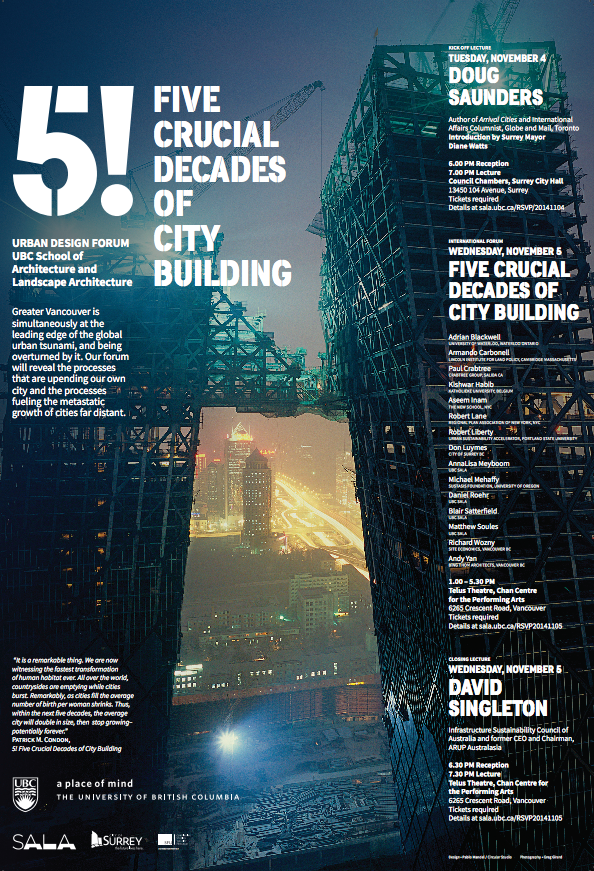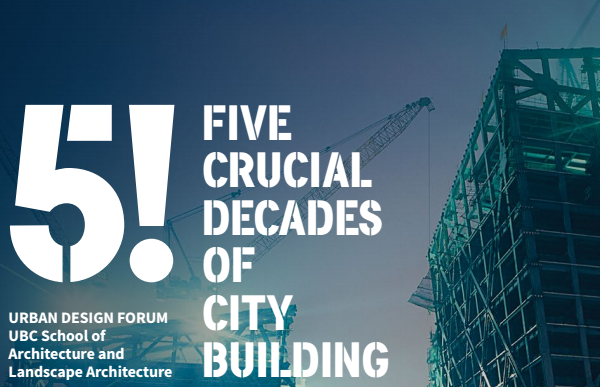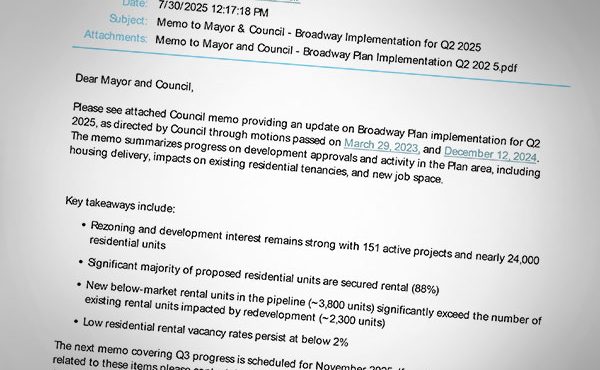In 2013, the world passed a threshold. Over half of the world’s population of 7 billion people now live in cities. The continued population growth and an unrelenting migration from rural areas will pour another 5 billion people into cities by 2060. However, if current demographic trends continue, global population will stop growing at about the same time. Put simply cities will grow at unprecedented speed for five decades – then stop growing at all. Thus, the cities of 2060 might be the cities of 2160, and 2260. What form will this, new and possibly permanent, city take? At least two distinctly different directions have began to emerge: concentrated and dispersed city patterns.
In the first year of the new UBC Master of Urban Design program, students will seek to understand how these patterns affect cities. The studios intend to explore their variants, and re-combinations, and how the attributes of these two patterns might increase livability, economic, and social vitality, and indeed the long term sustainability of cities.
Annual Theme and Forum
Each year, the Masters of Urban Design program will revolve around an urban design theme determined by the chair and studio faculty. At the end of the program, an internationally notable forum will be hosted. The theme for 2014/15 is 5 Critical Decades of City Building (pdf)
Urban Design Forum Events

Opening Lecture, Doug Sanders
Date: Tuesday, November 4, 2014 – 6:00pm to 9:00pm (Reception at 6:00 pm and lecture at 7:00 pm.)
Location: Council Chambers, Surrey City Hall, 13450 104 Avenue, Surrey
Tickets: Attendance is free but tickets are required.
Doug Saunders, author of Arrival Cities and International Affairs Columnist, Globe and Mail, Toronto. Details.
Five Crucial Decades of City Building: International Forum
Date: Wednesday, November 5, 2014 – 1:00–5:30pm
Location: Telus Theatre, Chan Centre for the Performing Arts, 6265 Crescent Road
Tickets: Tickets ($40) are required.
Greater Vancouver is simultaneously at the leading edge of the global urban tsunami, and being overturned by it. This forum will feature 15 speakers from around the world in dialogue revealing the processes that are upending our own city and the processes fueling the metastatic growth of cities far distant.
Closing Lecture: David Singleton
Date: Wednesday, November 5, 2014—6:30pm to 9:00pm(Reception at 6:30 pm and lecture at 7:30 pm.)
Location: Telus Theatre, Chan Centre for the Performing Arts, 6265 Crescent Road
Tickets:Attendance is free but tickets are required.
David Singleton, Infrastructure Sustainability Council of Australia and former CEO and Chairman, ARUP Australia.
Live streaming will be available if you are unable to attend these events in person. Details available soon.
Background: SALA Annual Theme and Forum
Each year, the Masters of Urban Design program will revolve around an urban design theme determined by the chair and studio faculty. At the end of the program, an internationally notable forum will be hosted. This forum brings top thinkers from around the world to join in dialogue with our students, prominent thinkers, and practitioners from the region. Public lectures, seminars, presentations, and panel sessions provide a wide array of contact and conversations between students, academic government officials, and professionals.
Keep Informed
With the launch of the Master of Urban Design Program, the School is also starting a mailing list dedicated to urban design. Sign up to receive updates and information by email.




